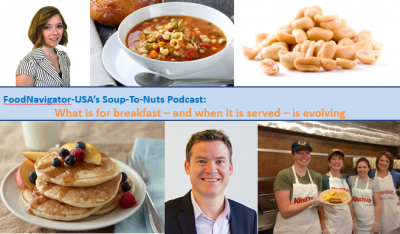High-protein breakfast may reduce food cravings, study suggests
The researchers, from the University of Missouri, used functional magnetic resonance imaging (fMRI) to monitor brain signals associated with food motivation and eating-related reward behaviors in ten obese adolescent girls who usually skipped breakfast. For three weeks, the teenagers either skipped breakfast or were given 500-calorie breakfasts consisting of either cereal and milk – containing a ‘normal’ amount of protein – or a high-protein breakfast of protein-enriched Belgian waffles, syrup and yogurt.
They found that there were differences in brain activity three hours after eating breakfast, and those differences were greater when a high-protein breakfast had been consumed.
Assistant professor at the university’s Department of Nutrition and Exercise Physiology and corresponding author Heather Leidy said: “Everyone knows that eating breakfast is important, but many people still don’t make it a priority. This research provides additional evidence that breakfast is a valuable strategy to control appetite and regulate food intake.”
The researchers said they chose to focus on teenagers who normally skipped breakfast for two reasons: Firstly, because breakfast-skipping has been associated with unhealthy snacking, overeating, weight gain and obesity, and secondly, because it is estimated that about 60 percent of teens skip breakfast every day.
“Incorporating a healthy breakfast containing protein-rich foods can be a simple strategy for people to stay satisfied longer, and therefore, be less prone to snacking,” Leidy said. “People reach for convenient snack foods to satisfy their hunger between meals, but these foods are almost always high in sugar and fat and add a substantial amount of calories to the diet. These findings suggest that a protein-rich breakfast might be an effective strategy to improve appetite control and prevent overeating in young people.”
The researchers added that caution should be taken in interpreting the findings due to the study’s small sample size.
Source: Obesity (2011)
Published online ahead of print. doi:10.1038/oby.2011.108
“Neural Responses to Visual Food Stimuli After a Normal vs. Higher Protein Breakfast in Breakfast-Skipping Teens: A Pilot fMRI Study”
Authors: Heather J. Leidy, Rebecca J. Lepping, Cary R. Savageand Corey T. Harris















